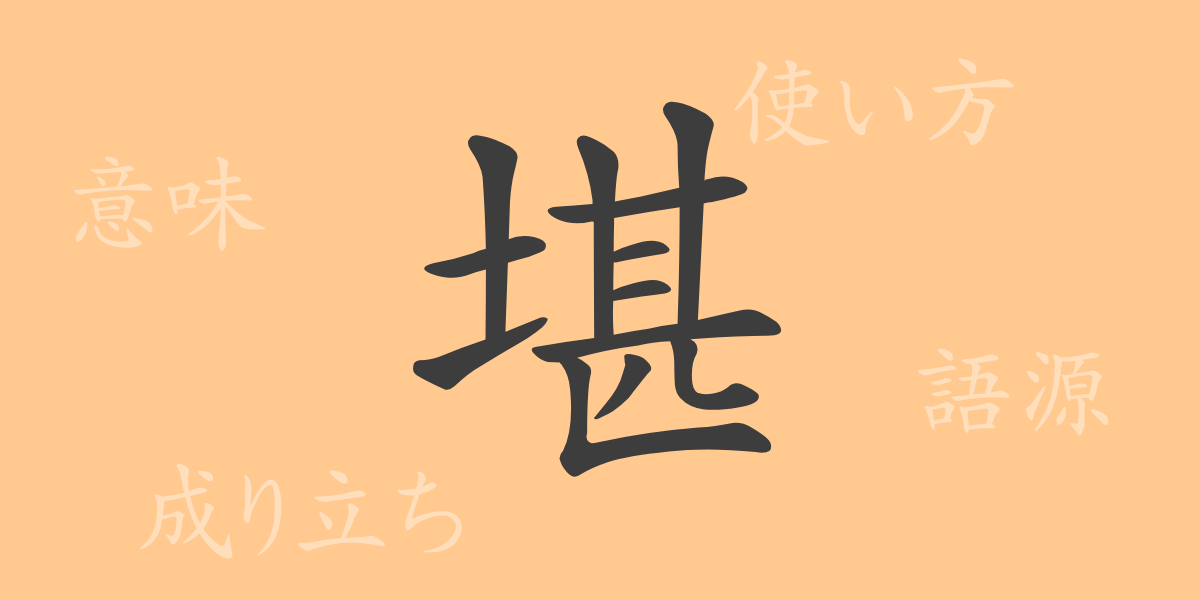The richness of the Japanese language comes from its complex and expressive writing system. Kanji is one of the core elements of this system, and the depth and history of each character are keys to deepening the understanding of Japanese culture. In this article, we will focus on the common kanji “堪” (Tan), exploring its origins, meanings, usages, as well as related idioms and proverbs.
Origins of Kanji “堪” (Tan)
The kanji “堪” (Tan) originates from ancient China. It is composed of the character for “earth” (土) and the character indicating sound “甚” (Jin), initially meaning “an earthen dike endures.” It came to mean “to endure” or “to bear,” and as this character was adopted into Japanese, it gained even more nuanced interpretations.
Meaning and Usage of Kanji “堪” (Tan)
The kanji “堪” (Tan) means “to endure” or “to bear.” It represents the ability to overcome mental or physical limits or difficulties. Depending on the context, it can be used in different ways, such as “堪えられない” (Ta-erarenai) meaning “unbearable” or “堪える” (T-aeru) meaning “sufficient” or “to be able to endure.”
Readings, Stroke Count, and Radical of Kanji “堪” (Tan)
There are multiple readings for the kanji “堪” (Tan), which vary depending on the context.
- Readings: On-yomi as “かん” (Kan), kun-yomi as “たえる” (Ta-eru), “こたえる” (Kota-eru), “こらえる” (Kora-eru)
- Stroke Count: A total of 12 strokes
- Radical: Earth radical (土部 Tutihenn)
Idioms, Phrases, and Proverbs Using “堪” (Tan) and Their Meanings
Idioms, phrases, and proverbs that include the kanji “堪” (Tan) reflect the deep meanings of the character.
- 堪忍袋の緒が切れる (Kannninnbukuro-no-o-ga-ki-reru) – An expression depicting the moment when one’s patience finally snaps and anger erupts.
- 堪能 (Tannnou) – To fully understand or enjoy something.
- 堪え難い (Ta-e-gata-i) – Unbearable or extremely difficult to endure.
- 堪える (Ta-eru) – To be able to endure or to be sufficient.
Summary of the Kanji “堪” (Tan)
The kanji “堪” (Tan) embodies the concepts of patience and endurance, and is used in various ways within the Japanese language. Its diverse usages and the deep cultural background seen in idioms and proverbs symbolize the profound depth of the Japanese language. From everyday conversation to literary works, this kanji is an essential part of conveying the richness of expression in Japanese.

























